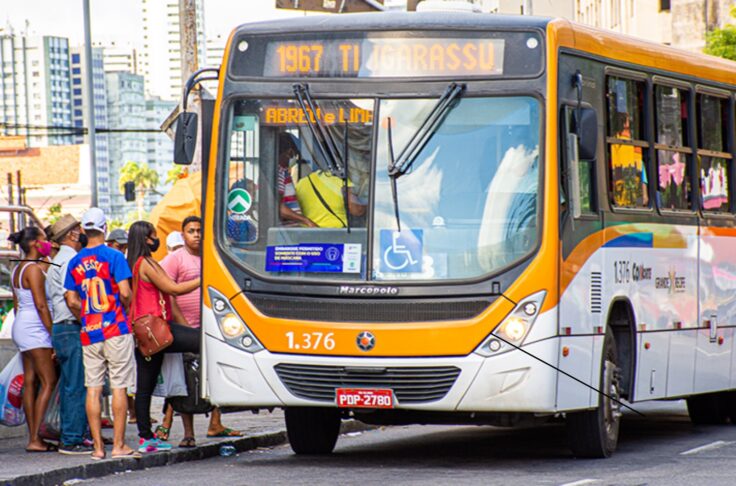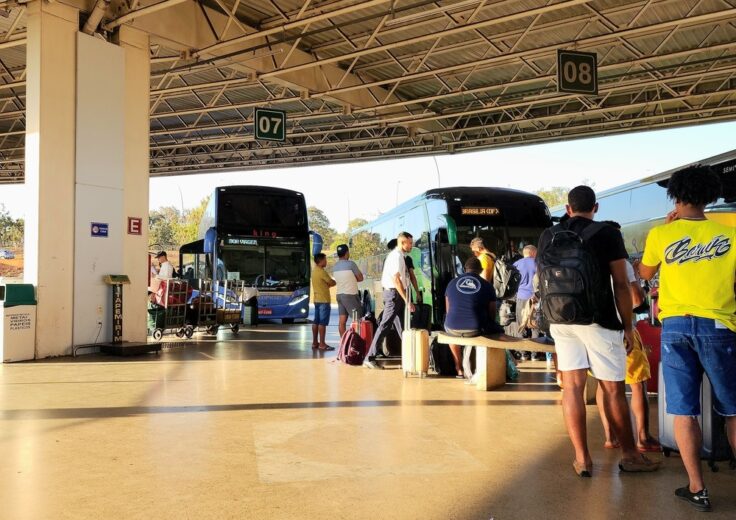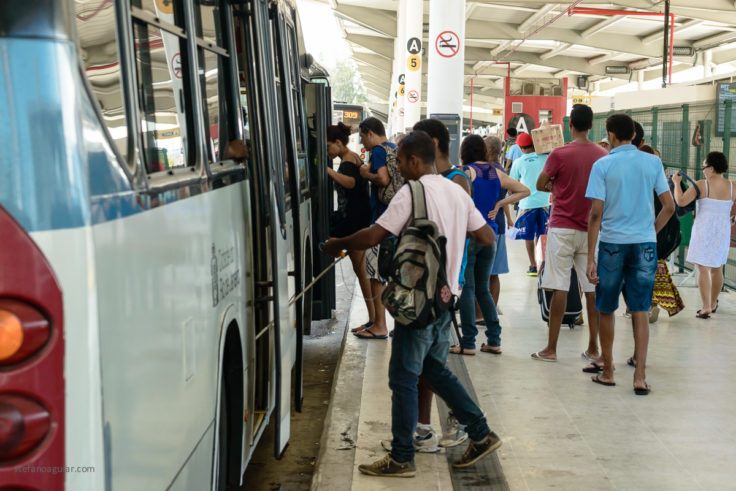October 24, 2024
What Brazil Needs to Do to Improve Its Regulation of Public Transport
Comprehensive and considered public transport regulation is essential to ensuring the quality, accessibility, and sustainability of bus systems
Access more resources on the transport sector in Brazil via ITDP Brazil’s publications here.
This is especially true for the large metropolitan areas in developing regions where public transport is most people’s primary means of mobility. In a nation like Brazil especially, where over 180 million people live in urban areas, a robust approach to transport policy and management is crucial to ensure Brazilians have reliable and affordable access to work, education, and essential services. Inadequate or poor regulation can result in many service inefficiencies, increased costs, precarious trips, and social exclusion for marginalized groups. Comprehensive regulations ensure that public transport can function as as a tool for equity and sustainable development.
With the goal of supporting the Brazilian Federal Government in advancing its National Urban Mobility Strategy, the country’s national development bank BNDES established a partnership with the Ministry of Cities, ITDP Brazil, and the National Front of Mayors. The group worked to conduct a survey on public bus transport in the 21 most populous metropolitan regions of Brazil, which together represent 42% of the country’s population and 54% of the urban buses in operation nationwide.
The study, Insumos para a Estratégia Nacional de Mobilidade Urbana (Inputs for the National Urban Mobility Strategy), assesses the current regulatory environment of the country’s public transport systems and maps the existence and public availability of GTFS, GPS and electronic ticketing system data. The research was developed based on 51 interviews with public managers from 29 local transport agencies across all of the metro regions. From this data, the report proposes a strategic agenda for the creation of public policies that will improve and enhance the quality of the transport for Brazil’s future, focusing on regulation, transparency, contract renewal, and subsidies.

The State of Regulations
One of the key points revealed by the study finds that 42% of public transport systems in these cities operate under a precarious permit or authorization regime, which means that they do not have properly formalized concession contracts. This scenario affects both the quality of services and the city’s capacity for long-term planning. In addition, 69% of concession contracts will be terminated between 2026 and 2040, creating a critical opportunity for contractual modernizations. At the same time, 41% of the contracts analyzed were not made publicly available, highlighting a serious lack of transparency in the sector.
Regarding the costs and investments in bus fleets in operation, the study revealed that 65% of the systems began to be subsidized following the detrimental impacts of the COVID-19 pandemic these past few years. However, the subsidy models adopted in many places do not ensure effective management by the government over the service provided, since more than half of the models are based on payments-per-passenger or something equivalent.
This format encourages an unsustainable competition for passengers, generates little incentive to improve the quality of existing services, and reduces transparency. The study ultimately suggests that, to overcome these challenges, a coordinated effort is needed between the federal, state, and municipal governments to formalize and improve concession contracts, ensure service reliability and transparency, and encourage the adoption of consistent regulatory practices throughout the country.
Open Data is Lacking But Necessary
The use of open data was also identified as essential to improving the planning and operation of public transport. The study shows that, although 62% of public bus transport systems have data in the GTFS (General Transit Feed Specifications) format as a strategic input for operational planning and user information, only 35% of this data is publicly available. With regard to GPS monitoring, although 75% of the systems have this technology, only 13% of the location data is accessible to the population or authorities.
This lack of transparency and data integration makes it difficult to effectively monitor the efficient operation of bus systems and limits the monitoring and planning capacity of cities. For electronic ticketing systems, which collects essential data on transportation demand and use, challenges also persist. The report found that 89% of ticketing systems are controlled by private companies, which underscores the dependence of public management on data access and the reduced reliability of this information. This also leads to difficulties in implementing adequate data management and in formulating efficient public policies.

A Path to Decarbonization
The study also found that 75% of bus fleet decarbonization initiatives are taking place in systems that operate under concessions with private sector partners. This demonstrates the potential of public-private partnerships to accelerate the transition to cleaner and more efficient fleets, in addition to showing the greater legal certainty resulting from having more structured operating contracts.
However, only 46% of systems have decarbonization initiatives underway, and many of these projects are still in the early stages. The adoption of technologies to reduce emissions, such as electric bus vehicles, is essential to addressing environmental challenges and improving the quality of life in large Brazilian cities. The report proposes measures to expand these projects, with financial and technical support from the federal government, in addition to partnerships with private sector actors.

Download the full study and its findings in Portuguese here.
Proposals for More Efficient and Reliable Regulations
Based on the research carried out, the report proposes a strategic agenda that includes several measures to improve the management and operation of public transport across these major metro areas in Brazil. Among the proposals are:
- The creation of metropolitan management structures to coordinate public transport in these regions, ensuring tariff integration and joint planning between municipalities;
- The adoption of national governance for the management of public transport data, promoting the publication and integration of data from GTFS, GPS and electronic ticketing systems;
- The strengthening of public control over electronic ticketing systems, ensuring that fare collection is managed in a transparent and auditable manner; and
- The promotion of decarbonization policies, with the adoption of more sustainable bus fleets and financial and technical incentives for cities that adhere to these initiatives.
The agenda also proposes that the federal government, through partnerships with states and municipalities, develop technical training for public managers in order to provide support for the adoption of more efficient concession models and for the analysis of operating data. In addition, investing in a national fund to support public transport systems overall can help cities implement better transparency and sustainability practices.
Better, more equitable, and cleaner public transport networks start with cohesive and well-designed regulatory frameworks that ensure their oversight and efficiency in the long-term.
